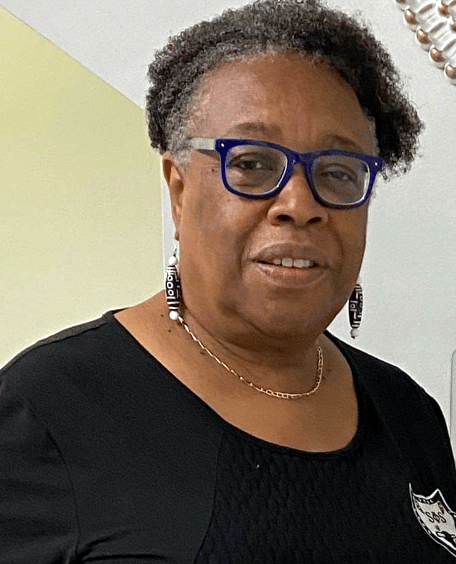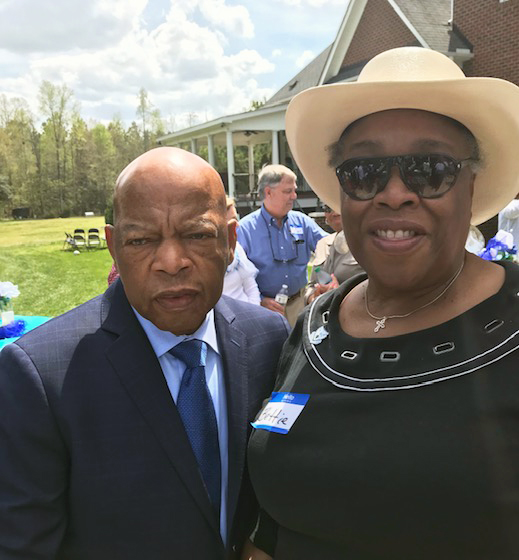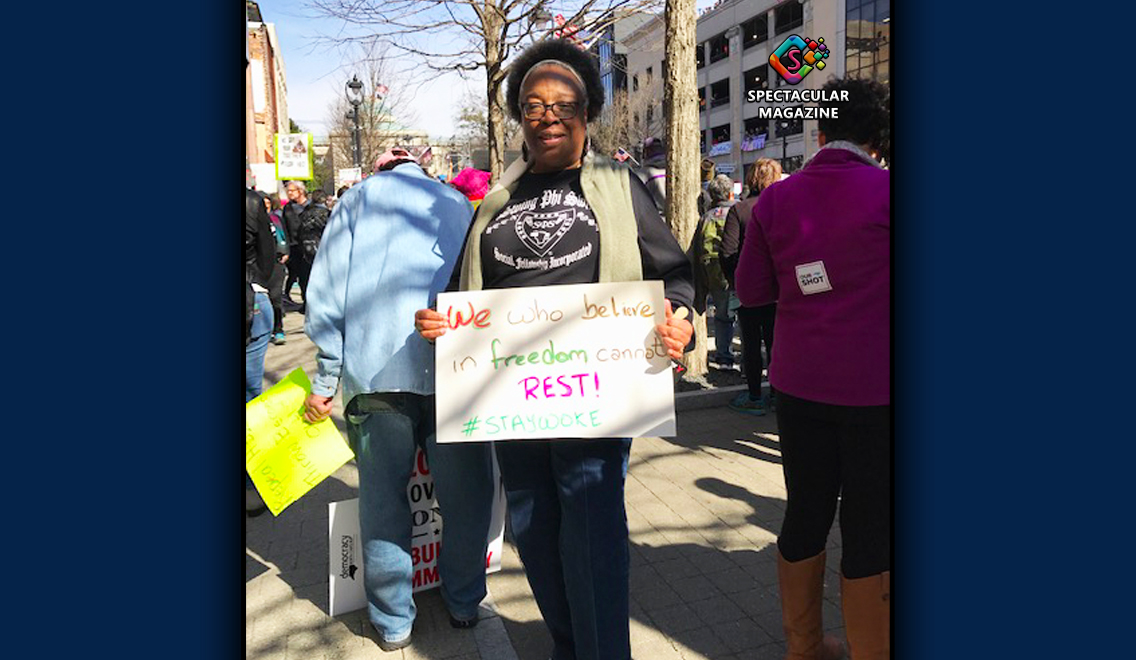Project REFOCUS: Bettie Murchison Addresses Racism, Social Stigma Related To Covid, Next Health Crisis
RALEIGH, N.C. — Project REFOCUS aims to put a collective face on the sentiment that ‘when white people catch a cold, Black folks get the _______. Most Black people, anecdotally speaking, know to fill in that blank with “flu,” the notion therein being whatever bad thing happens to white people is worse for Black people.
REFOCUS is an acronym for Racial-Ethnic Framing Of Community-informed and Unifying Surveillance. Established to address racism and social stigma related to COVID-19 and other crises, Project REFOCUS — a national effort funded by the CDC Foundation — is co-led by the Howard University Department of Communication, Culture and Media Studies and the UCLA Center for the Study of Racism, Social Justice and Health.
Health equity, racism, and social justice emerged as talking points when COVID-19 shuttered the world in 2020. That dialogue was happening before COVID-19, no doubt about it. But what the pandemic did was reinvigorate the discussion, updating the conversation to account for a more inclusive society.
Roll back the calendar to 1932 and recall what for the next 40 years became known as the Tuskegee experiment that left Black men disingenuously untreated for syphilis. That was before the internet downloaded the Information Age. This meant COVID-19 arrived when it was easy for a proliferation of online content to cause disinformation, creating confusion about whether the new coronavirus and vaccines to treat it were the Tuskegee experiment all over again.

Bettie Murchison, who leads the community advisory board for Project REFOCUS, heard that sentiment so much that she rolled up her sleeve, got vaccinated, and posted the photo on social media. Folks on the fence about getting the shot who either directly or indirectly knew her got jabbed, too.
“It was an avalanche of folks,” Murchison said. “People were just afraid. They were getting a lot of false information.”
Murchison put a face on COVID-19.
That’s the goal of Project REFOCUS, for example, addressing gaps in data collection pertaining to race; or perhaps what gets shared on social media, whatever is necessary to remove barriers to health and wellbeing. A more nuanced COVID-19 data set would provide public health professionals and media members with information that equips them to appreciate the unique lived experiences of underrepresented populations, according to Derrick Sauls, Ph.D., the co-principal investigator for the Project REFOCUS effort in Raleigh.
Done with fidelity, a more inclusive data set would position leaders to administer a community-informed and, consequently, more effective response to the next public health crisis, Sauls explained.
Wake County is one of six locations for Project REFOCUS pilot projects. Other locations include Phillips County in Detroit, Michigan; Albany, Georgia; San Antonio, Texas; and the Bronx in New York.
The Project REFOCUS team at Shaw University collaborates with its community advisory board and existing developers of local and state dashboards that track COVID-19 outcomes. The aim is to ensure the inclusion of community-defined data and other indicators in order to create a fuller context for COVID-19 while emphasizing community strengths and addressing community challenges. It’s about incorporating all stakeholders at all phases of engagement, from conducting a community environmental scan through project evaluation.
“Rather than reinvent the wheel, Project REFOCUS wants to add spokes that are reflective of the factors, such as community communication strategies and attention to other factors that are so important in the achievement of health equity in Wake County and beyond,” Sauls said.

Much of Murchison’s community work over the years was done in Wake Forest, particularly its rural areas. She established and ran a community center there. It was the early 2000s, and Murchison and her teammates were helping people secure housing. There was an after-school program for kids, a clothes closet, and free computers. And, before it was trendy, there were services for mental health — services Black people were using in Wake Forest, countering the notion that therapy is just something white people do.
“That’s not necessarily true,” Murchison said. “You start believing what you hear.”
Some Black people were skeptical about the validity of COVID-19 and subsequent vaccines for it because of the way information about those things was delivered, with social media being a contributing conduit.
“That’s one of the reasons COVID was so hard to battle,” Murchison said. “But when trusted community members came in and said, ‘We need to get vaccinated,’ people started mobilizing.”
Murchison and her team overcame mistrust back in the day in Wake Forest by showing up every day in a genuine way and allowing people to understand that they were not operating as saviors sent out to do a good deed for the sake of reporting to their pastor that they’d completed some one-off assignment in the name of the Lord, and then get on with living their good lives while needs persisted. No, Murchison was not running a pop-up community center. It was there to stay, its food bank as reliable as the neighborhood grocery store.
“Some of it has to do with trust,” Murchison said. “Once the buzz started on the street that they’re not going anywhere, people began to trust us more.”
According to a Wake County Government survey conducted from Sept. 13-Oct. 12, 2022, 63% of the county’s residents did not agree that county officials were doing a good job promoting homeownership and the availability of affordable housing. Isolating for Raleigh, that number was 65%. Drilling down for Black, Latino, and white people, it was 60%, 58%, and 65%, respectively.
Sauls doesn’t deny the integrity of those numbers but does wonder about the methodology and is curious about whose voices still were not represented.
“The average Black person sitting on the [city] bus is not going to fill out this long questionnaire,” Sauls said.
A more inclusive approach would entail administering a three-question survey through a QR code on a city bus that folks could more easily complete on the way to their stops. More people would participate that way, and it’s the kind of thing a successful Project REFOCUS would bring about, Sauls said.
One of the key outcomes of Project REFOCUS will be its dashboard providing real-time public-health data. Let’s say a lack of transportation keeps someone from getting to a medical facility for treatment. That would be reflected on the dashboard, where public health professionals could capture the need and address it.
Another successful outcome would be providing Wake County with the understanding that while COVID-19 is tamped down, decades of health disparities still exist, Sauls said.
“We’re in a pickle jar,” he insisted.
A couple of decades ago in Wake Forest, Murchison discovered that even though assistance was available, people’s perceptions about those resources were disconcerting.
“We were meeting the needs of the community, but it was the apathy and the hopelessness that was hard to counter,” Murchison said. “There was such a spirit of hopelessness that nothing would change.”
Overcoming that apathy required implementing what these days are referred to as warm handoffs, establishing a network of individuals who become trusted disseminators of information about resources so others can take advantage of what’s right there for them.
“It’s important that we do a warm handoff whenever possible,” Murchison said.
Feature image credit: Bettie Murchison at a march in Raleigh, North Carolina (submitted)



